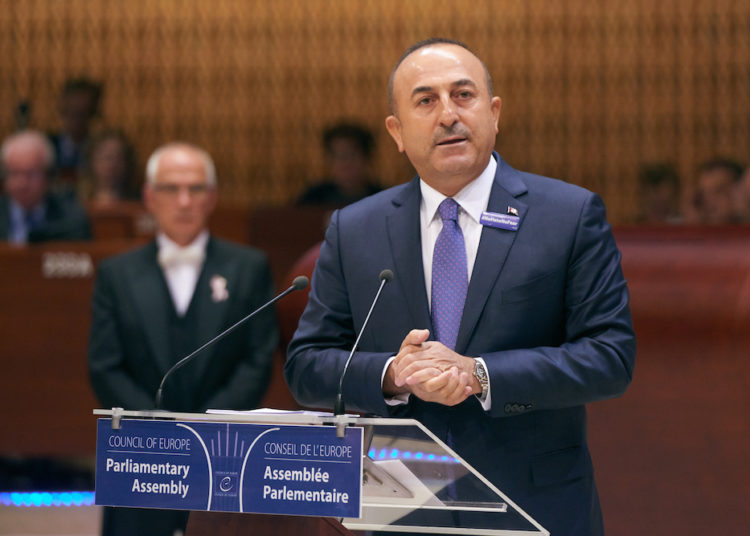Turkish Foreign Minister Mevlüt Çavuşoğlu has not responded to a single question from opposition lawmakers in the last six months, since the new session of the Turkish Parliament convened in June 2018, a document obtained by Nordic Monitor has revealed.
Çavuşoğlu, who served as president of the Parliamentary Assembly of the Council of Europe (PACE) for two years between 2010 and 2012, has often lectured on the significance of the assembly and the importance of legislative powers in democracy. Yet he has failed to respond to any of the 399 written questions submitted by the opposition lawmakers.
According to Article 98 of the Turkish Constitution, Cabinet ministers are required to respond to parliamentary questions within two weeks.
The revelation of how legislative oversight in Turkey has been dramatically crippled under the government of President Recep Tayyip Erdogan was made on Dec. 14, 2018, when Deputy Parliament Speaker Mustafa Sentop sent the latest statistics on queries to an opposition lawmaker. According to the list, Çavuşoğlu was the worst performer with zero response to any of the questions posed to him, followed by Berat Albayrak, Erdogan’s son-in-law and minister of finance and treasury, who responded to only one out of 281 questions. Defense Minister Hulusi Akar came in third in avoiding opposition inquiries in parliament by responding to only two questions out of 148. Even those two responses were not provided in a timely fashion.

The numbers do not tell the whole story, however. Even when government members respond to questions from opposition lawmakers, in most cases they provide totally irrelevant answers or send it to another minister to bury the facts in bureaucratic procedure. As the speaker’s office is under the control of Erdogan’s ruling Justice and Development Party (AKP), some questions that were found to be too sensitive by the Erdogan government were rejected outright and returned to the deputies without forwarding them to the relevant minister.
With a public referendum that granted Erdogan imperial powers within the Turkish government in April 2017, the right of the opposition parties to question Erdogan was removed. Previously, the head of the government was obligated to respond to parliamentary inquiries. Now, parliamentary questions can only be directed to the president’s deputy or Cabinet members, while others that are sent to Erdogan are rejected by the speaker’s office.
The total figures on how the government performed in responding to opposition inquiries across various legislative sessions show a worsening track record with each legislative session. The record of the Erdogan government has gone from bad to worse. For example, in the 23rd legislative session between August 2007 and June 2011, the Erdogan government responded to 86 percent of all questions, although 36 percent of them were late. In the next legislative session, from June 2011 to June 2015, government responses dropped to 60 percent of all inquiries submitted.

In the 25th legislative session, which lasted only four months, between June 2015 and November 2015 because of snap polls and the fact that parliament was prevented from fully functioning by Erdogan, the percentage of responses plunged to a historic low, only 6 percent. The government response was 45 percent in the 26th session from November 2015 to June 2018, when the government moved the election date forward from 2019. In the last session, which began in June 2018, the government has replied to only 27 percent of queries, which confirms the steady decline over the years, with the exception of the 2015 period, during which time snap polls were called by Erdogan after he lost his majority in parliament.
As a result, the Turkish Parliament’s rubber-stamping role has been confirmed with the poor record in government responses to opposition questions.












